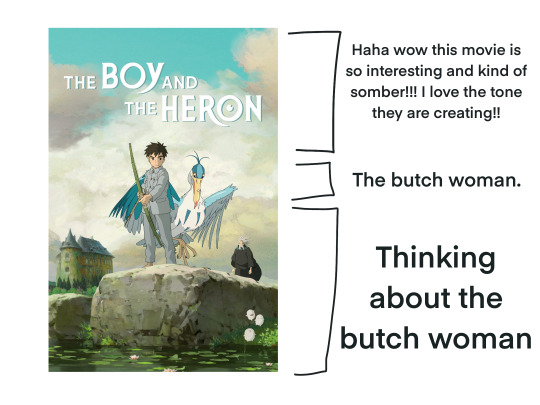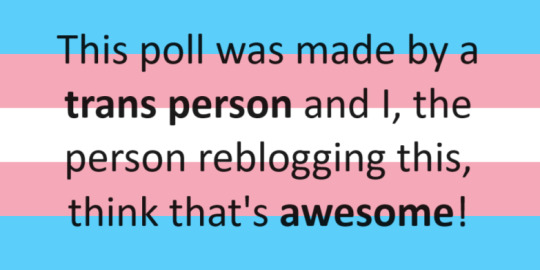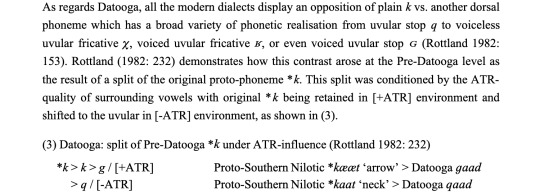#sound change
Text
Sound Change of the Day - 2024 April 20
/x/ becomes /w/ between /a/ and /o/.
(Proto-Eastern Muskogean to Creek)
#conlang#conlanging#phonology#conlang phonology#sound change#phonological change#sound shift#phonological shift
41 notes
·
View notes
Text
Day 35 - MyLang, Sound Changes part ??
Today's prompt is about finalizing and ordering the sound changes. I think over the weekend I was able to get that pinned down pretty well.
@quothalinguist did include a cool resource recommendation: Lexurgy!!! I have used the Zompist sound change applier in the past, but Lexurgy seems a bit clearer to me about how to write and understand the rules.
It's definitely closer to coding than I am used to, but I wanna learn something new and add this tool to my tool kit - a major goal of this year.
Also, it's been 35 days!!!! Whaaaat?!?
29 notes
·
View notes
Note
welcome back! Ages ago I think you posted a link to a dictionary of common sound changes any chance you still have that resource or something like it? need some guidance so I'm not doing something totally wacky like all my Ts becoming Qs
Got a couple things for you. The first is the Index Diachronica, which is a searchable website. It's a database of hundreds of natural language sound changes.
Second is William Annis's "Paterns of Allophony", an article on Fiat Lingua that represents visually common sound changes.
Hope you find those useful!
178 notes
·
View notes
Note
Do you have any literature on sound changes involving ejective consonants? Specifically ejective consonants changing into something else?
I don't know of any general surveys, but several individual cases are of course found in literature in more detail. It would be worthwhile to have some compiled data on this though! For a start I'll collect some examples in this post.
The best-described case might be Semitic, where any handbook (or even just the Wikipedia article) will inform you about *kʼ > q, tsʼ > (t)s etc. being attested in Arabic / Aramaic / Hebrew. Offhand I don't know if there is a particular locus classicus on the issue of reconstructing ejectives for Proto-Semitic, though.
---
Cushitic, which I've been recently talking about, has open questions remaining especially in what exactly to reconstruct for various correspondences involving ejective affricates, but at least the development of the ejective stops seems to be well-established. Going first mainly per Sasse (1979), The Consonant Phonemes of Proto-East Cushitic, Afroasiatic Linguistics 7/1, three developments into something else appear across East Cushitic for *tʼ:
*tʼ > /ɗ/ (alveolar implosive): Oromo, Boni, Arboroid (Arbore, Daasenech, Elmolo), Dullay, Yaaku and, at least word-internally, Highland East Cushitic.
*tʼ >> /ᶑ/ (retroflex implosive): Konsoid (Konso, Dirasha a.k.a. Gidole, Bussa). (As per Tesfaye 2020, The Comparative Phonology of Konsoid, Macrolinguistics 8/2. Some other descriptions give these too as alveolar /ɗ/.)
*tʼ >>> /ɖ/ (retroflex voiced plosive): Saho–Afar, Somali, Rendille.
Presumably these all happen along a common path *tʼ > ⁽*⁾ɗ > ⁽*⁾ᶑ > ɖ. Note though that Sasse reconstructs *ɗ and not *tʼ — but comparison with the case of *kʼ, the cognates elsewhere in Cushitic, and /tʼ/ in Dahalo and word-initially in Highland East Cushitic I think all point to *tʼ in the last common ancestor of East Cushitic. (As per other literature, I don't think East Cushitic is necessarily a valid subgroup and so this last common ancestor may also be ancestral to some of the other branches of Cushitic.)
For *kʼ there is a wide variety of secondary reflexes:
Saho–Afar: *kʼ > /k/ ~ /ʔ/ ~ zero (unclear conditions).
Konso: *kʼ > /ʛ/ (no change in Bussa & Dirasha).
Daasenech: *kʼ > /ɠ/ word-initially, else > /ʔ/.
Elmolo: *kʼ > zero word-initially, else > /ɠ/.
Bayso: *kʼ > zero.
Somali: *kʼ > /q/, which varies as [q], [ɢ] etc.; merges in Southern Somali into /x/). Before front vowels, > /dʒ/.
Rendille: *kʼ > /x/.
Boni: *kʼ > /ʔ/.
though some of them again could be grouped along common pathways like *kʼ > *q > *χ > x, *kʼ > *ʔ > zero.
*čʼ > /ʄ/ happens at minimum in Konso (corresponds to /tʃʼ/ in Bussa & Dirasha). Proposed developments of a type *čʼ >> /ɗ/ in some other languages could go thru a merger with *tʼ first of all.
No East Cushitic *pʼ seems to be reconstructible, but narrower groups show *pʼ > /ɓ/ in Konsoid (corresponds to Oromo /pʼ/) and maybe *pʼ > /ʔ/ in Sidaamo (corresponds to Gedeo /pʼ/; mainly in loans from Oromo).
There is also an unpublished PhD from University of California at LA: Linda Arvanites (1991), The Glottalic Phonemes of Proto-Eastern Cushitic. I would be interested if someone else has access to this (edit: has been procured, thank you!)
Secondary developments of *tʼ and *kʼ in the rest of Cushitic, per Ehret (1987), Proto-Cushitic Reconstruction, Sprache und Geschichte in Afrika 8 (he also reconstructs *pʼ *tsʼ *čʼ *tɬʼ, but I'm less trustful of their validity):
Beja: *tʼ > /s/, *kʼ > /k/.
Agaw: *tʼ > *ts (further > /ʃ/ in Bilin and Kemant), *kʼ > *q (further word-initially > /x/ in Xamtanga and Kemant, /ʁ/ in Awngi)
West Rift: *kʼ > *q (and *tʼ > *tsʼ).
(The tendency for assibilation of *tʼ is interesting; although plenty of Cushitic languages get rid of ejectives entirely, none seems to have a native sound change *tʼ > /t/.)
---
The historical phonology of the largest Afrasian branch, Chadic, is much more of a work in progress, but I would trust at least the following points as noted e.g. by Russell Schuh (2017), A Chadic Cornucopia:
*tʼ > *ɗ perhaps already in Proto-Chadic (supposedly all Chadic languages have /ɗ/);
*kʼ > /ɠ/ in Tera (Central Chadic);
/tsʼ/ in Hausa and some other languages corresponds to /ʄ/ or /ʔʲ/ in some other West Chadic languages, not entirely clear though which side is more original.
Tera /ɠ/ alas does not seem to be discussed in detail in the Leiden University PhD thesis by Richard Gravina (2014), The phonology of Proto-Central Chadic; he e.g. asserts /ɠəɬ/ 'bone' to be an irregular development from *ɗiɬ, while Schuch takes it as a cognate of e.g. Hausa /kʼàʃī/ 'bone'. (Are there two etyma here, or might the other involved Central Chadic languages have *ɠ > /ɗ/?)
If Olga Stolbova (2016), Chadic Etymological Dictionary is to be trusted (I've not done any vetting of its quality) then Hausa /tsʼ/ is indeed already from Proto-Chadic *tsʼ, and elsewhere in Chadic often yields /s/, sometimes /ts/ or /h/. Her Proto-Chadic *kʼ mostly merges with /k/ when not surviving. (She also has an alleged *tʼ with no ejective reflexes anywhere, and alleged *čʼ and *tɬʼ which mostly fall together with *tsʼ, but also show some slightly divergent reflexes like /ʃ/, /ɬ/ respectively.)
---
Moving on, a few other examples I'm aware of OTTOMH include the cases of word-medial voicing in several Koman languages and in some branches of Northeast Caucasian (Chechen and Ingush in Nakh; *pʼ in most Lezgic languages). Also in NEC, the Lezgic group shows complicated decay of geminate ejectives, broadly:
> plain voiceless geminate in Lezgian, Tabassaran & Agul (same also in Tindi within the Andic group);
> voiceless singleton (aspirated) in Kryz & Budux;
Rutul & Tsaxur show some of both of the previous depending on the consonant, as well as word-initially *tsʼː > /d/ and *tɬʼː > /g/ — probably by feeding into the more general shift *voiceless geminate > *unaspirated > voiced (which happens in almost all of Lezgic).
in Udi, both short and geminate ejectives > plain voiceless geminates (plus a few POA quirks like *qʼʷ > /pː/, even though *qʷ > /q/).
Again I don't know if this has been described in better detail anywhere in literature, this is pulled just from the overviews in the North Caucasian Etymological Dictionary plus some review of the etymological data by myself.
Ejectives in Kartvelian are mostly stable in manner of articulation, but there's a minor sound correspondence between Karto-Zan *cʼ₁ (probably = /tʃʼ/) versus Svan /h/ that newer sources like Heinz Fähnrich (2007), Kartwelisches Etymologisches Wörterbuch for some reason reconstruct as *tɬʼ or *tɬ. The Svan development would then probably go as *tɬ⁽ʼ⁾ > *ɬ > /h/, after original PKv *ɬ > /l/.
I do not know very much about the historical phonology of any American languages, including if there's anything interesting happening to ejectives there; if someone else around here does, please do tell!
#phonology#phonotypology#ejectives#historical linguistics#sound change#anonymous#cushitic#chadic#lezgic#kartvelian
23 notes
·
View notes
Text
Re: Youkoso! ようこそ!
Considering this is a conlang blog, the first word I'm going to look at is ようこそ or welcome, and then derive the term in Old Nyango to work it into the modern version slowly.
ようこそ /jo:koso/ originally comes from 良く/jɘ.ku/ the adverbial form of 良い (originally 良し /jɘ.si) which can be pronounced either /i:/ or /jɘ.i/, plus the Old Japanese "emphatic particle" こそ /kɘ.sɘ/.
This later dropped the /k/ somewhere between 900 CE and sometime in the 1100's. In the standard dialect, the adverbial forms either retained the /k/ sound, or else regained them through a reading pronunciation. But several set phrases, like ようこそ came from the Kyoto dialect and never regained the /k/ in these forms. So, in ようこそ, /jɘ.ku/ became /jɘ.u/ and then /jo:/. That process can be written like this:
/jɘ.ku/ > /jɘ.u/ > /jo:/
こそ /kɘ.sɘ/ is simpler but also seems harder to pin down. It was a common emphatic particle which sometimes caused changes to how verbs were used in the sentence.
So ようこそ /jo:koso/ and its predecessors basically mean you're yelling "Good!" very emphatically. I think that's a very catlike way of welcoming someone (if you aren't disappointed for them being late or the like), and some folk stories about cat youkai have them living at court, which for a while moved but eventually settled in Kyoto.
So the equivalent of this word in Nyango is going to start out very similar to the original word in Old Japanese.
The Old Nyango version of ようこそ was simply /jɘ'.ku.kɘs/, and at the time would have been written, if at all, the same way ようこそ was. In Old Japanese, this would have likely used Man'yougana, which is its own post.
At that time, Old Japanese had 8 vowels instead of the 5 that are in standard Modern Japanese. These vowels are usually written <i1 i2 u e1 e2 o1 o2 a>. Of the doublets, i1, e1 and o2 were the most common, though e1 and e2 were both a bit rare. Due to different things I've read while researching about the Old Japanese sound system, I've decided to assume they had values similar to /i y u (j)e ɛ (w)o ɘ a/ and am going to base sound changes from Old Japanese to Old Nyango and onward to modern times.
----
In some languages, /ɘ/ - also called the schwa sound - is a fairly weak vowel, and easily drops out of words. In other languages, it acts like a full vowel. In Japanese, /ɘ/ became /o/ over time, but was never particularly weak, unlike the "high vowels" /i y and u/, which tend to "devoice" between unvoiced consonants. So I have decided as just a little twist that in certain cases, /ɘ/ will drop out causing sound changes not found in Japanese. At the time of Old Japanese, these changes won't be huge, but they will cause others over time.
1 note
·
View note
Text
theoretic evolution of the word Ngįouxt "the Ngįouxt language"
0. /ŋĩ.ɔu̯t/ [ŋĩ.ɔ̝.wɑ̈t] stage 0, the modern word
1. velar nasal is dropped in all positions - [ĩ.ɔ̝.wɑ̈t]
2. high vowels in hiatus with a following vowel fortify to glides, nasality moving to the following vowel - [jɔ̝̃.wɑ̈t]
3. nasality spreads through sonorants to following vowels - [jɔ̝̃.wɑ̃t]
4. word stops dropped - [jɔ̝̃.wɑ̃]
5. lastly, the labial approximant fortifies to a fricative - [jɔ̝̃.vɑ̃]
1 note
·
View note
Text
the sound change in Tuareg languages is all I can think about right now. geminated voiced fricatives turn into ungeminated voiced plosives! and like, I get the fortition connection, but still . . . counterintuitive and surprisingly beautiful.
1 note
·
View note
Text

Mostly spoiler free summary of my viewing experience
#The boy and the heron#how do you live#studio ghibli#ghibli#in all honesty that movie was legitimately so fantastic and im like changed as a person#Story wise as well! It hits really hard if you know a bit about miyazaki and his legacy. Its a very personal movie i think#And you can feel it in every aspect#The eng dub voice actors were really good as well and the animation was beautiful as always#Also really loved the tone!!! The story really relied a bit on the use of negative space in both sound and pacing and i enjoyed that alot#in conclusion go read a article about miyazaki and his son and then go watch the movie it’s probably going to be one of my favorites#image id in alt
12K notes
·
View notes
Text
Sorry if you're already over 50, I ran out of room (you're welcome to leave your thoughts in the tags or replies!)
If you're younger than 10, get the fuck off Tumblr. People are saying swears on here!

[EDIT: It's OK to vent a bit about negative feelings in the comments/tags, but if you're gonna talk about killing yourself, do me a favour and fucking don't]
#polls#birthdays#ageing#milestones#organic home grown content#for me (28) while there's an element of 'where the fuck did the time go?'#30 sounds all right. even kind of nice#you're still on the younger side of adulthood but you're no longer one of those 'barely an adult' new adults#although some people might feel that change at 25#i feel like 40 is gonna be harder to deal with. that still feels like the age people's parents are#though it might look different once i'm in my 30s#100 tier#1000 tier#suicide mention
4K notes
·
View notes
Text


How about the winner get a kiss from the loser? Do you wanna end up in a coma? You can drain my energy any time, chère. Gambit has plenty.
GAMBIT & ROGUE | X-Men '97 1.03 "Fire Made Flesh"
#rogue x gambit#gambit x rogue#x men 97#xmen97edit#xmenedit#marveledit#animationedit#cartoonedit#tvedit#userrobin#userninz#useranimusvox#userbbelcher#userstream#animationsdaily#dailyflicks#cinemapix#xmen 97#x men 97 spoilers#daniedits#I mean... my god#I was not expecting them to change up the scenes in the intro#(although I am offended they removed storm -- her thunder sound effect is an integral part of the theme song!)
3K notes
·
View notes
Text

happy hanukkah!
(and then for tomorrow...)

#homestar runner#the cheat#hanukkah#happy hanukkah#chanukah#jewish#menorah#image description in alt#it is not sundown yet where i am but i was hoping to catch folks eastward#i like the sound of todanukkah better but it's gotta be tonightukkah#judaism#changed it from 'monday' to 'tomorrow' so maybe it could be reused in future years
31K notes
·
View notes
Text
Sound Change of the Day - 2024 April 11
In finals, /l/ is removed after /i/ and /e/ and becomes /j/ otherwise.
(Proto-Vietic to Middle Vietnamese)
#conlang#conlanging#phonology#conlang phonology#sound change#phonological change#sound shift#phonological shift
11 notes
·
View notes
Text


Steve tries to stay quiet while he gets ready for work, but Eddie hears him. He keeps his eyes closed and just listens- to Steve grumbling to himself when his hair doesn’t sit quite right, who starts to hum and whisper some catchy song. Eddie turns his sleepy gaze onto Steve as he shuffles around their room- watching quietly as he slips on his clothes, his shoes, a simple chain with Eddie’s ring around his neck. A warm, affectionate smile breaks across his face. Before he leaves, Steve glances at what he expects to be a sleeping Eddie, but instead, he’s met with a rasped, ‘Hey.’ Eddie sits himself up, stretches his arm across Steve’s side of the bed, and reaches, fingers wiggling. Steve crosses the room to cradle his face.
Their foreheads press, noses bump, and Steve brushes his fingers across scars and dimples.
He breathes a quiet,
‘Sorry, I didn’t mean to wake you.’
Eddie huffs a tired laugh,
‘You know I never mind.’
Because, yeah.
Every morning Steve tries to stay quiet while he gets ready for work, but Eddie always hears him.
( another one from the poll | WIP )
#in my feels this fine morning#eddie cant let steve go without his goodbye smooch#i imagine eddie would sleep through anything#but i also like to think he lets himself wake up#he likes to watch Steve’s morning routine#which may or may not include winking at himself in the mirror when his final once over checks out#steddie#steddie fanart#steve harrington#eddie munson#stranger things#i changed Steve’s face from the WIP.. it needed better angling#I’m not a writer so please ignore grammar and whatever other problems lol#i type like i read it in my head#so hopefully it sounds alright
7K notes
·
View notes
Text
Imagine if Corroded Coffin got popular and over the years they released a shit ton of music. But one year they came out with a metal Christmas album. All of the songs going hard and exactly what everyone expected. Except, the last song was Not metal.
The cover of Santa Baby is more stripped down than the rest and Eddie changes the words of the song to Santa Buddy. But he puts in so much sexual tension in his singing that everyone is freaking out.
But then they post a music video for Santa Baby. And instead of one of the Corroded Coffin boys in the Santa outfit, it's some guy no one recognizes. Eddie dances around the guy, and it's the gayest thing anyone's seen.
And well, only their close family recognize it as Steve, Eddie's (illegal) husband.
#brought to you by the fact that i think when guys sing santa baby and change the words to buddy or dude its still sounds gay#steddie#stranger things#eddie munson#corroded coffin#knightly talks
3K notes
·
View notes
Text

Plosives are devoiced word-finally and when adjacent to another plosive or a fricative. Datooga [dɑtˑɔːkɑ̥] is underlyingly /tattooka/ (or equivalently /daddooɡa/);
looks like Datooga has relatively general initial voicing of all stops, with possible exception for uvular
4 notes
·
View notes
Text
People sorting ao3 solely by stats and only clicking on fics with a certain amount of kudos or comments, you will not survive the winter, nor the summer, nor at all, *brings out knife,* run
#ao3#fanfiction#because if everyone thinks like that then so many fics that might be great get buried and fall into the void#someone has to read it with no hits or kudos#not to mention sometimes people just have wildly different tastes so you don't know unless you look at it yourself#i put a bunch of exclusion filters and then go by summary and tags and open all the ones that sound interesting to me#if they're bad well easy enough to move on#but lotta good ones hidden in there with not a comment in sight and i must change that#knife tw#?#tw knife mention
2K notes
·
View notes